How Quady Winery Became a Certified Sustainable Winery
By Allison Quady
Sustainability, Safety, Communications
We’re growing up at Quady Winery, from a small business to a mid-sized winery, employing 35 people from the Madera, Fresno, and Chowchilla areas. We have more tanks chilling our popular Moscato and an estimated 180,000 gallons we are crushing this year. While we are proud to be a part of our Valley’s thriving economy, climate change is pushing us to address our impact on the environment. We know that our sector – agriculture and manufacturing – can play a big part in pivoting our region towards a healthier and more resilient future.
We’ve been taking steps in the past year. Making goals. Strategizing about how we can do better. Our first audit with the California Sustainable Winegrowing Association (CSWA) was in June, and this resulted in our first certification as a CSWA Certified Sustainable Winery. We had a lot of taking stock to do to prepare for the audit, and the more we looked at our practices, the more we saw that prioritizing sustainability would improve our resiliency and efficiency in a hotter and drier climate. The CSWA program is focused on continuous improvement, so many of our conversations have been centered on changes we can make in the coming year and in future years.
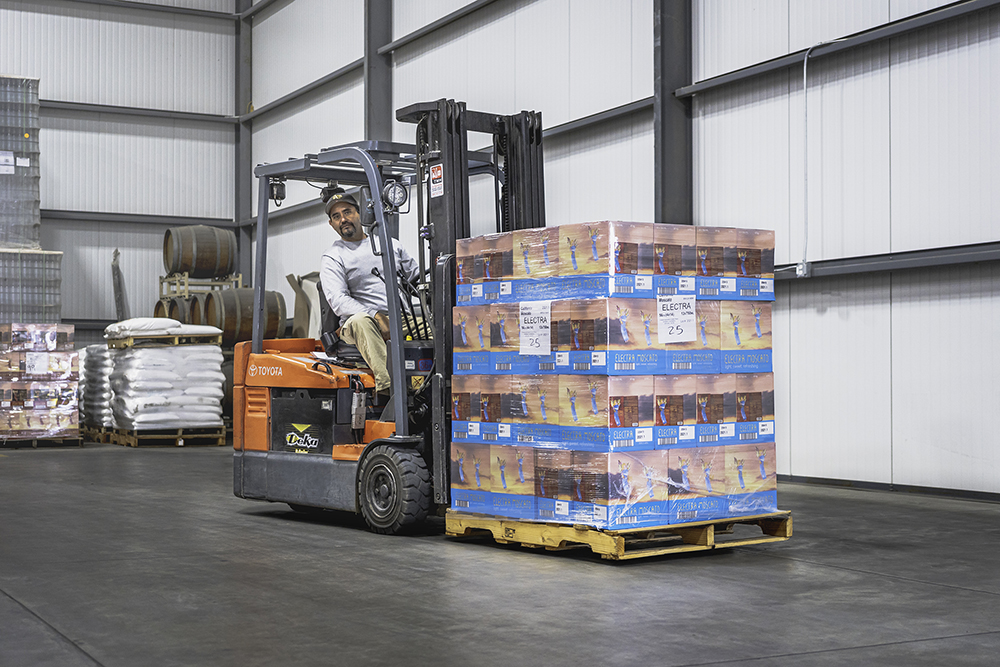
An area that we are particularly interested in is energy resiliency. We enrolled in the California Low Carbon Fuel Standard Program this year, thanks to Pine Spire and our fleet of five electric forklifts. Pine Spire sells our low-carbon fuel credits on California’s carbon market, and we use the proceeds from our credits to further invest in an electric fleet or other low-carbon energy projects. The electric forklifts are easy to use and to charge, and employees say they are preferred to our propane lifts, which we still use to drive over rougher surfaces outside near the vineyard.
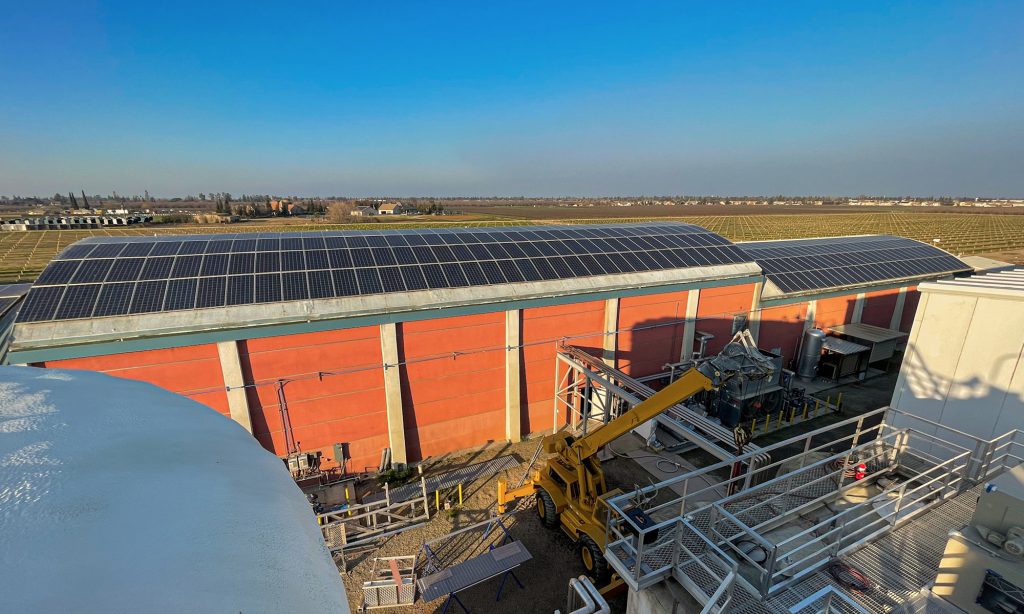
Another energy resiliency project is our transition to solar. We have solar panels on the winery roof that offset approximately 64% of our electricity use. The bigger we grow, the more tanks we install, and the more energy is required to chill the wine in those tanks until we can bottle it. Our goal is to offset close to 100% of our energy and to be able to store that energy onsite with future investments in solar panels and energy storage.
A lot of our own mental energy, especially that of owner Andy Quady, is currently going into designing a new wastewater filtration system so that we can safely send all the water we use back into the vineyard, cleansed of nitrates and other contaminants, to water the vines and replenish the aquifer. The new Biofiltro system to be installed this winter uses worms to break down the nitrates and other organic matter, helping to filter the water so that it is safe to return to the aquifer. Andy has been working on the Biofiltro system for over a year, planning how big it needs to be, how it will connect with the winery effluent, and how to keep the worms fed as the effluent ebbs and flows. We’re also measuring how much water we use in our different operations to see how much we can lower our water use per bottle produced.
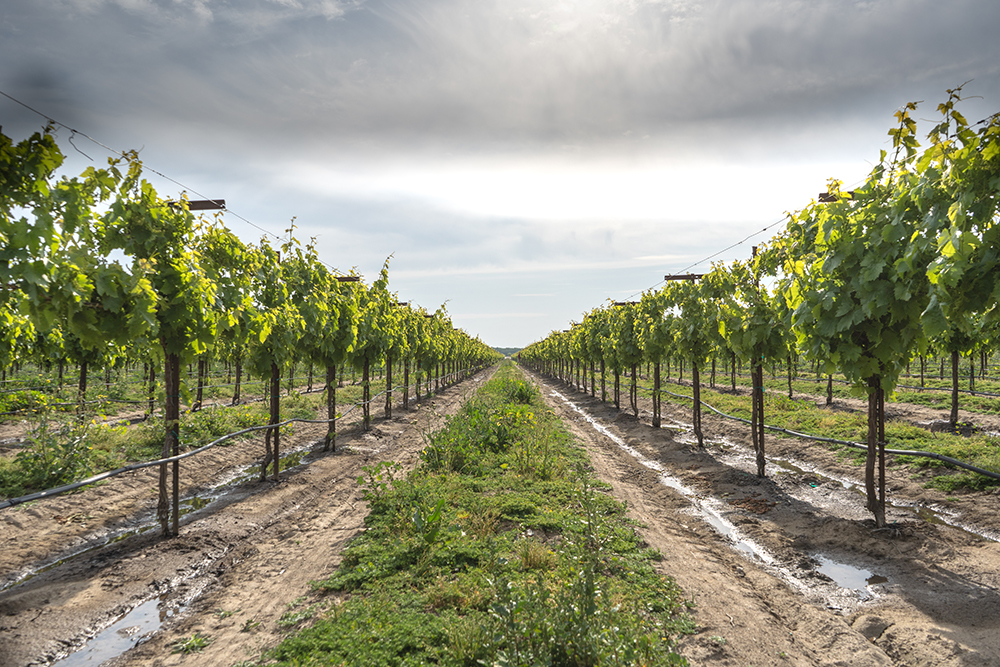
Water is our most limited natural resource in the Valley, and we think that wine grape growing can be a sustainable crop when done with water efficiency in mind. Most all of our grapes come from Madera County, and we have a few sources in Fresno and further north in the Valley. Our primary grape growers, Denis Prosperi and his family, have certified all of their Muscat grapes Sustainable with CSWA. Because of the Prosperi’s efforts, we already have 92% and 87% Certified Sustainable Black and Orange Muscat, respectively. Only 53% of our Muscat Canelli sources are Certified Sustainable, so we’ve written a clause into all future grape contracts to require certified grapes. The certification of vineyards assures us that our growers monitor and conserve water and use biological and cultural pest and disease controls, while minimizing the harmful chemicals they use. Since CSWA demands continuous improvement, we also know that each year certified vineyards are improving their environmental impacts.
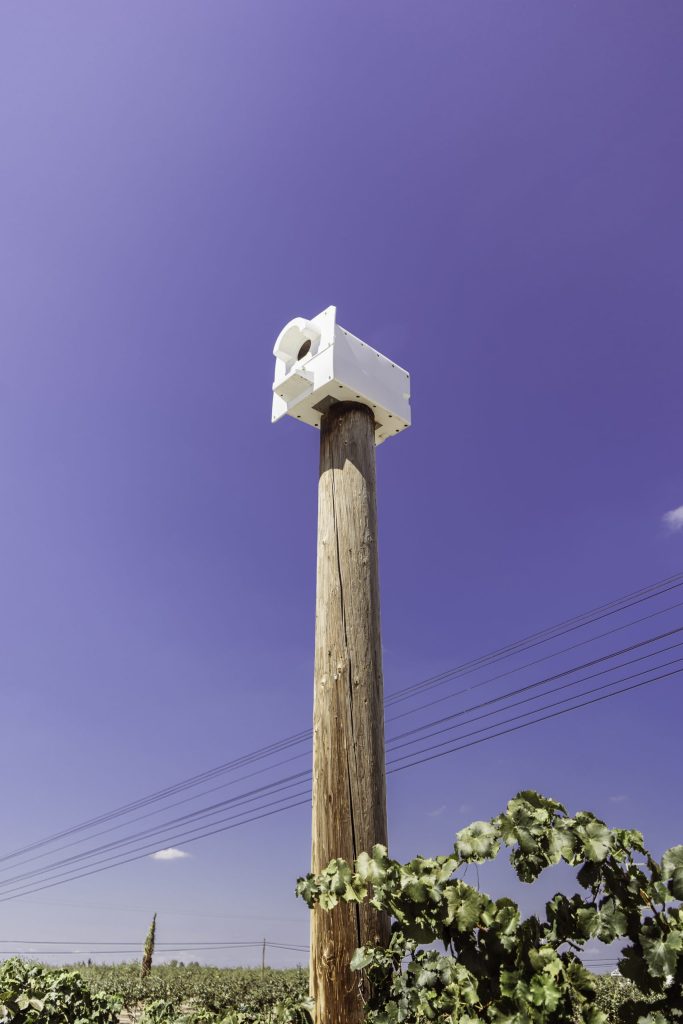
One practice that stands out on our estate vineyard, and the Prosperi Certified Sustainable Vineyards, is the use of owl boxes to attract owls who help control gophers without the use of rodenticide. We have three owl boxes, and a family of owls on the property. We also trap a lot of gophers because even the owls find it hard to keep up.
The cross-departmental sustainability project has touched every Quady employee, and we are all finding reasons to pitch in.
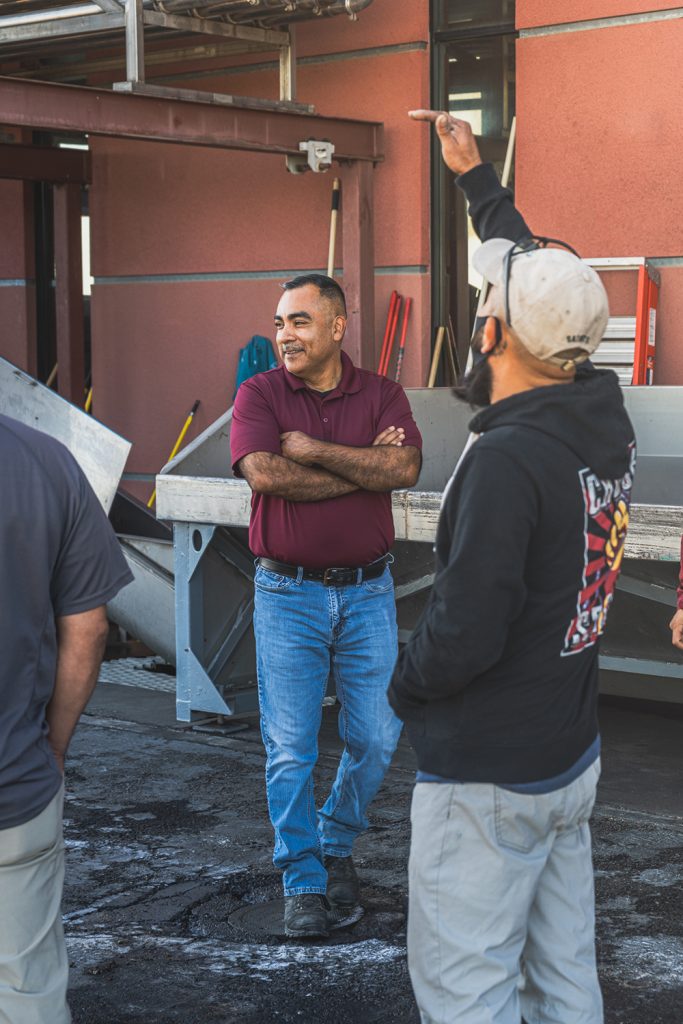
In the words of our Cellarmaster, Juan Cuevas, “For me, personally, the reason is, I am very into the history of winemaking in this region; it’s one of the reasons I came to Quady Winery, to be a part of making fine wine in the Valley. When I orient new employees to Quady, I tell them about the Italian-Swiss Colony of wine grape growers that started in the 1800s, right in our area. If we want to continue this tradition of wine grape growing for future generations and into the next century, we need to take care of our natural resources now.”
We recognize that we are at the beginning of a long climb towards becoming a net positive, environmentally speaking, for the San Joaquin Valley. Determining the most impactful sustainable solutions starts with measuring resource use over time and carefully planning. That’s part of growing up, so that as we get bigger, we get better at monitoring and efficiently using resources. We’re committed to our sustainability project and to becoming an important part of the San Joaquin Valley’s transition to a resilient, water efficient, carbon neutral economy, ensuring the future of fine winemaking for generations to come.

